
Hawkins / Wahrheit
Inhaltsverzeichnis: (verbergen)
 Gerölle aus Sandstein |
|
Es ist unmöglich, die Fackel der Wahrheit |
|
Wahrheit ist die Folge aus Kontext und Paradigma, Inhalten und Standpunkten.
Die wesentliche (erste) Scheide zwischen Wahrheit und Irrtum, zwischen Integrität und Nicht-Integrität, ist der Bewusstseinswert 200 nach der Skala des Bewusstseins. Mit dem Mut, sich zur (eigenständig erkannten) Wahrheit
Unwahrheit und Ignoranz sind nicht Feinde der Wahrheit. In ihrem Umfeld ist Wahrheit abwesend.
Spirituelle Wahrheit bewegt sich im nichtlinearen Bereich. Sie ist Kontext.
Eine Affirmation der radikalen Wahrheit lautet: |
|
Wahrheit ist |
| See also: ► Truth is ... |
Alternative source: Dissolving the Ego, Realizing the Self. Contemplations from the Teachings of David R. Hawkins, M.D., Ph.D., S. 193, 1st quote, Hay House, August 2011


Persönliche Bekenntnisse
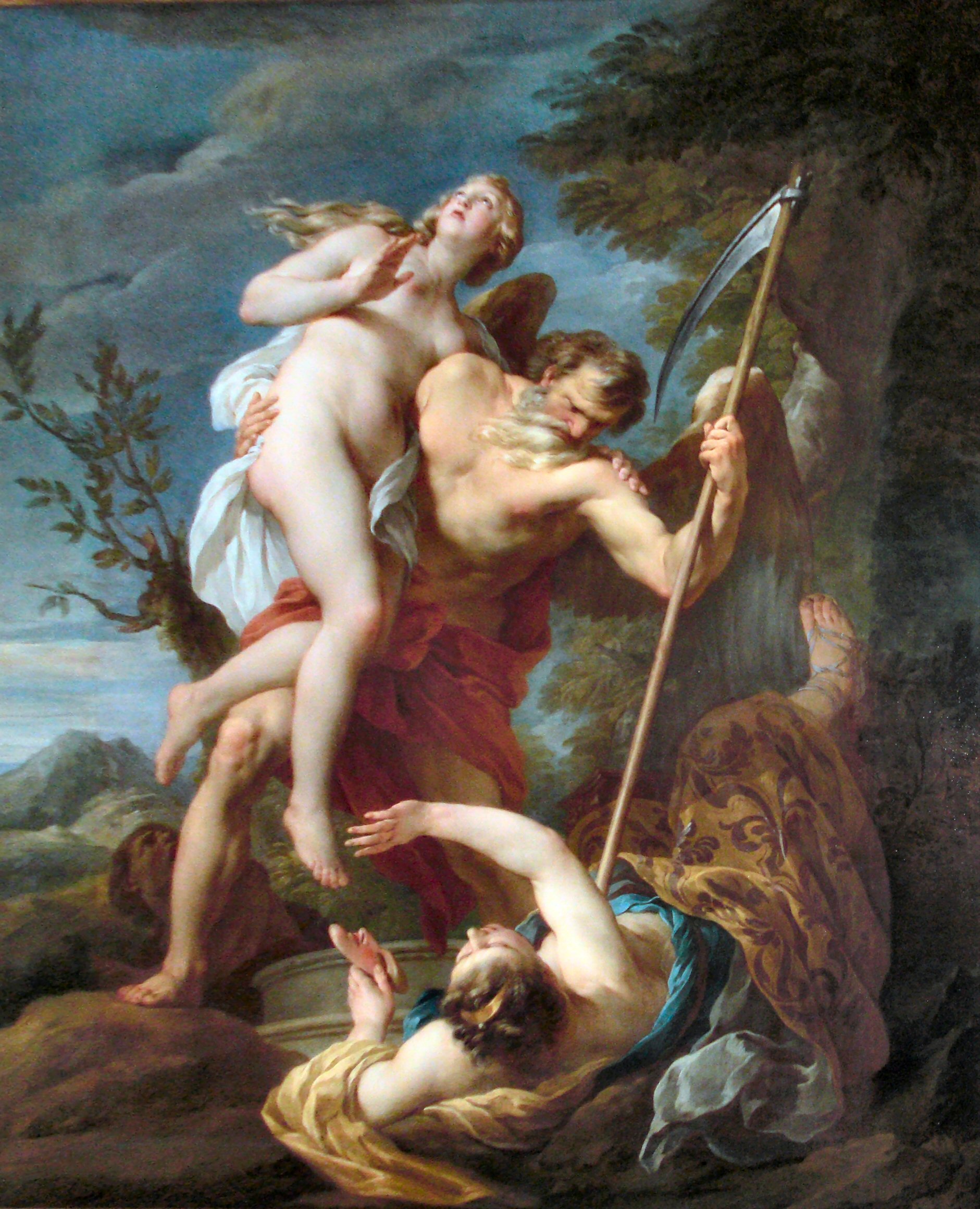
Empfehlungen
Appelle
Zukunftsaussicht
Schlussfolgerungen
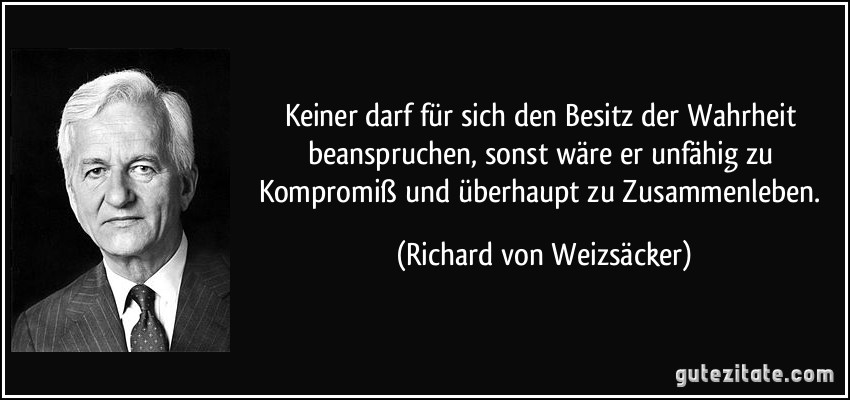
Einsichten
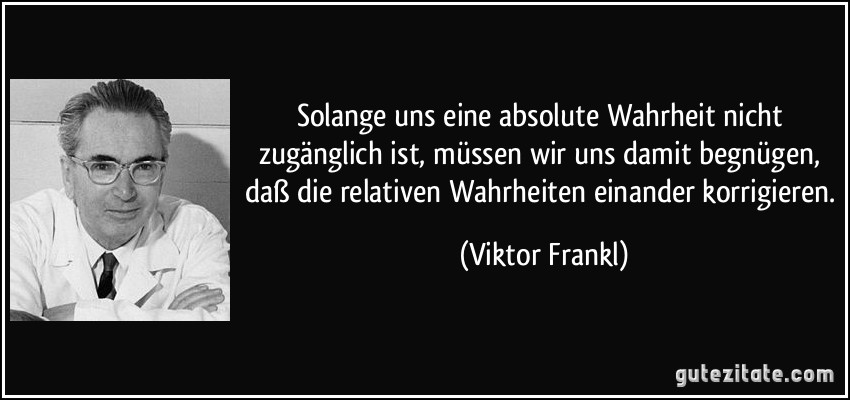

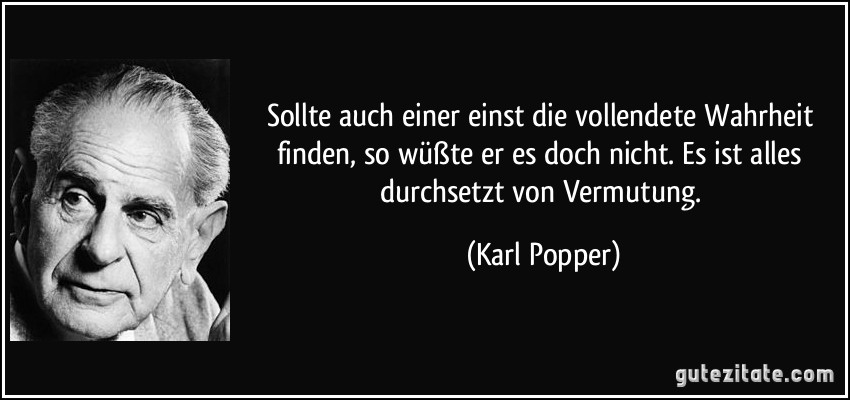
|
Literaturzitate

Die Wächter der öffentlichen Diskussion – die Vertreter der Leitmedien - wähnen nur jene Akteure im "Wahren", die sich an Orten äußern (dürfen), die von den medialen Torhütern als legitim anerkannt sind.
Opernzitat
Gedichte

| ||||||||||||||||||||||||||||
| Quelle: ► Thomasevangelium [BW 660], Logion 002, Teil der Apokryphen, 50-140, 350 n. Chr., 1945 |
| Siehe auch: ► Gesetz 3:1 |
Personal avowals

Recommendations
Appeals
Conclusions
Scylla was the sea monster living on one side of a narrow channel of in the Strait of Messina, opposite of her counterpart Charybdis, who was later rationalized as a shipping hazard whirlpool. The two sides of the strait were only an arrow's range apart, so that sailors attempting to avoid Charybdis would pass dangerously close to Scylla and vice versa.
Insights

The opposite of a correct statement is a false statement. But the opposite of a profound truth may well be another profound truth.
Article 'The Ministry of Truth' , presented by the publication PowellsBooks.Blog, Dorian Lynskey, 5. June 2019

"Those who can make you believe absurdities, can make you commit atrocities."

|
Literary quotes
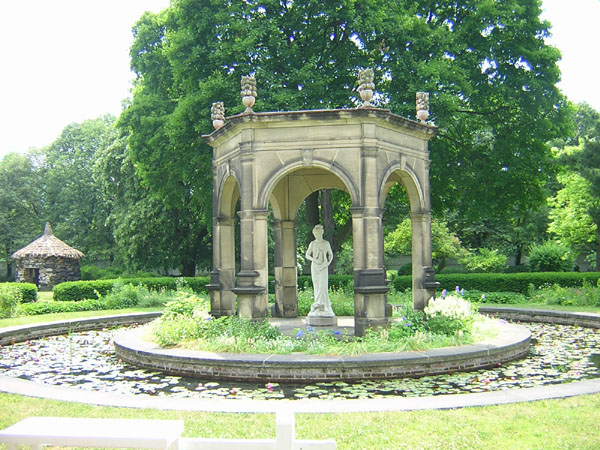
Apocryphal quotes
These insights arose from a contest of wisdom for the biblical King Darius. Three of his trusted bodyguards each wrote what they thought was the strongest in life and placed their notes under the king's pillow. Next morning King Darius had the wisest men and nobles of Persia and Media judge each statement, deciding that truth is strongest of all.
Poem
Movie lines
Recommendations
Conclusion
|
Armstrong, the first person to (supposedly) set foot on the moon, was fighting tears at this moment of his speech.
Literary quote
Poem
|
Truth is ...
° a variable related to an absolute constant.
° essence.
° content within context.
° complete and total.
° self-sufficient.
° sought after.
° feared.
° subjective.
° direct.
° confronting.
° self evident.
° obvious.
° radically simple.
° inviting.
° non-linear.
° independent of opinion.
° factual.
° effective.
° inviolable.
° not transferable.
° not provable.
° not defensive.
° not against anything.
° not soliciting.
° not cajoling.
° not a popularity contest.
° Truth harbors no contrary.
° Truth harbors no secrets.
|
| Siehe auch: ► Wahrheit ist... |
Mahatma Gandhi [LoC 760] believed that each person has a piece of the truth, whereas no one has the whole of it.
 "The Truth coming out of the well", Jean-Léon Gérôme (1824-1904) French painter, 1896 A 19th century legend describes what happened on that day when the Truth and the Lie met.
"It's a marvellous day today!"
The Truth looked up to the skies and sighed, for the day was really beautiful. They spent a lot of time together, ultimately arriving beside a well. The Lie told the Truth: "The water is very nice, let's take a bath together!"
The Truth, once again suspicious, tested the water and discovered that it indeed is very nice. They undressed and start bathing. Suddenly, the Lie came out of the water, put on the clothes of the Truth and ran away. The furious Truth came out of the well and ran everywhere to find the Lie and to get her clothes back. The World, seeing the Truth naked, turned its gaze away, with contempt and rage.
|
| Audio reference: ► Removed narration The Truth and the Lie, YouTube film, 2:33 minutes duration, posted 15. September 2018 |
| See also: ► Stories |
Englische Werke
Links zum Thema Wahrheit und Realität / Truth and realityLiteratur
Literature (engl.)
Marital infidelity, white lies, resumé lies, self-deception, how children learn to lie.
Externe Weblinks
Vor seiner Verhaftung am 12. Februar 1974 und nachfolgenden Verbannung in den Westen veröffentlichte Solschenizyn den Text von Lebe nicht
External web links (engl.)
Audio- und Videolinks
Audio and video links (engl.)
Linkless media offering
Comments on the shift in US government (with president Obama) [last third of interview]
|
Wiki-Ebene
Englisch Wiki
1 Hsin Hsin Ming by Seng-T'san ⇑
2 Narrated video summary of the French social psychologist Gustave Le Bon (1841-1931)'s classic Gustave Le Bon: The Nature of Crowds, presented by the Academy of Ideas, YouTube film, 8:41 minutes duration, posted 28. July 2013 ⇑
3 Truth vs. Falsehood. How to Tell the Difference, S. 202, 2005 ⇑
4 Truth vs. Falsehood. How to Tell the Difference, S. 106, 2005 ⇑